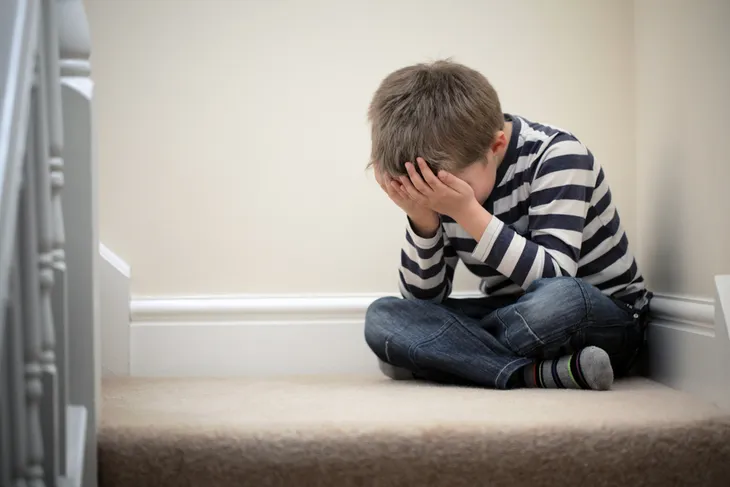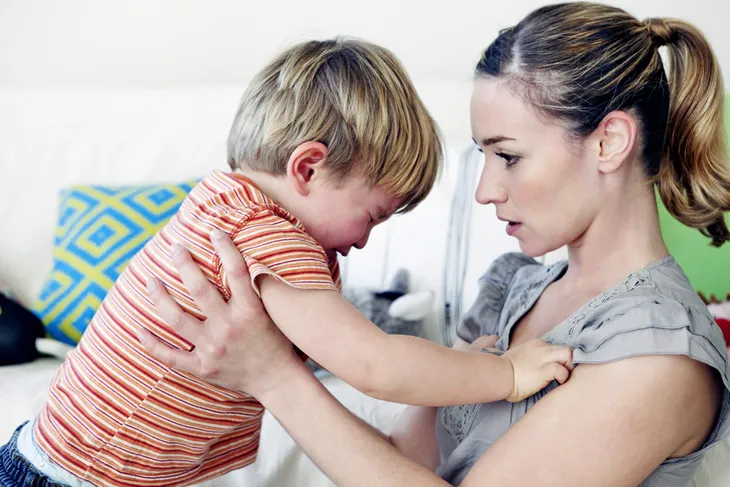When we think of stress, we often think about it from an adult perspective that includes work pressures and finances. However, children are very susceptible to stress as well, although they may not communicate it to you as clearly.
These stressors in kids can trigger strange or uncharacteristic behaviors, so it’s best to try and identify them rather than passing it off as a “phase.” Here are six ways to know if your child is under stress and what to do about it…
Bedwetting
According to KidsHealth.org, one of the symptoms of childhood stress is bedwetting, especially if it’s “sudden” and they don’t have a history of the problem. While there are other possible health causes of bedwetting, taking a look for potential sources of stress is a good place to start.
If the problem persists, there are ways to help address the bedwetting and try to reduce or eliminate it, but that won’t address the bigger picture. It’s best to try and have a non-threatening conversation with your child about what’s bothering them. Make yourself “available,” suggests the source.
Certain Keywords
Your child will probably not come to you and say, “wow, I sure am stressed!” but they will likely use other words that are hints about their mental state, according to the American Psychological Association (APA).
For example, according to the APA, as a parent you should “listen and translate,” meaning you should be aware if your child is using certain words to describe what’s actually outside stress. These words can include being worried, confused, annoyed or angry, it notes.
Physical Symptoms
As you’re probably all too aware of, chronic stress can have negative physical impacts. The same is true for your child: they may start complaining about certain illnesses out of the blue, and if they persist you definitely shouldn’t ignore them.
These physical manifestations of stress include headaches, chest pain, tummy aches, anxiety, and fatigue, according to PsychCentral.com. Your doctor or pediatrician may be able to sort out these symptoms and trace them to their cause.
Aggression
If your normally sweet child starts lashing out or interacting differently with others, they may be facing a source of stress you don’t know about. “An aggressive child is a stressed child,” plainly suggests PeacefulParent.com.
If your child is hitting as a sign of aggression, remind them “it’s normal to feel like hurting when you’re angry,” but also tell them, “I know you know it’s not okay to hit,” suggests the source. It adds that generally, children don’t like to be aggressive, and it’s often the feeling of being overwhelmed that drives the behavior. Don’t lash out at your child, as this will help the cycle to continue, it adds.
Tics
Many children will experience what’s known as “transient tic disorder” during their childhood, which can involve seemingly uncontrolled blinking or other unusual physical patterns. They may also make noises that are incomprehensible.
While these tics are quite common in children (affecting up to 25-percent of children, according to WebMD) the trigger is not easy to pinpoint and the exact causes are not known, adds the source. However, both stress and sleep deprivation “seem to play a role in both the occurrence and severity of motor tics,” it explains.
Interrupted Sleep
Speaking of sleep deprivation, if you little angel is waking at 2 a.m. (which can be accompanied by a nightmare) and usually sleeps soundly through the night, they may have some stress knocking at their door. Stress experienced during the waking hours can affect their quality of sleep at night, according to ParentingScience.ca.
It seems stress raises certain hormone levels that make them too “alert” to enjoy a peaceful slumber, notes the source. It suggests to take a look at their environments, and determine if kids around them at school or daycare are stressed, or if you and your partner have been arguing or disrupting a peaceful home life. “Research confirms that stress is contagious,” adds ParetingScience.ca.









